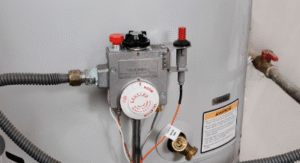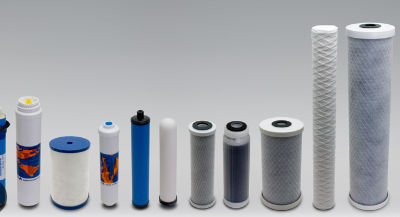To take advantage of the ease and comfort of warm showers, immaculate dishes, and efficient laundry cycles, any house has to have a working hot water system. Like any other home appliance, hot water systems do not, however, endure forever. Over time, wear and tear can produce inefficiencies, increased energy use, and even total system failure. Stopping unplanned failures and costly emergency replacement calls for knowledge of the warning signs of a failing hot water system. We will look at some key indicators that suggest it may be time to replace your hot water system, so you can decide with knowledge before disaster hits Water Replacement.
Table of Contents
System’s Age One of the first things you should consider whether your hot water system requires replacement is its age. Too little or unreliable hot water. Longer heating times, a consistent shortage of hot water, or changes in water temperature could point to problems your system is having meeting demand. A silt accumulation in the tank could restrict the hot water availability and lower heating efficiency. In gas-powered systems, a malfunctioning burner or a defective heating element in electric ones can also produce temperature swings. If you routinely get lukewarm showers or have to wait longer for hot water, your system can be malfunctioning in a dead giveaway manner.
Water damage and leaks
Any hint of leaking close to your hot water system should be addressed seriously since even small drops can potentially cause major water damage. Usually the source of leaks is internal corrosion, weak connections, or tank cracks. Although small leaks can be corrected, larger issues usually point to the tank having degraded beyond repair. To prevent structural damage to your house and invest in efficient hot water systems that will benefit you in the years to come, take quick care of any standing water or moisture around your unit. By replacing the unit right away, you can prevent costly repairs and maybe mold development from prolonged water exposure.
Rusty or discoloured water
Should the water flowing from your hot water taps be rusty or discoloured, your water heater tank could be rusted. Older types, including metal tanks, are particularly susceptible to this issue since rust can compromise the system and lead to leaks. If you just see brownish or reddish water when using hot water, the heater itself, not your plumbing system, is probably the cause of the problem. Although draining the tank may help to temporarily lower sediment accumulation, ongoing rust issues suggest that a replacement is just about required.
Strange Sounds and Rumbling Noises
It will become more difficult to heat the water if your hot water tank finally develops mineral deposits at the bottom and sediment. This additional strain often generates rumbling, popping, or banging sounds as the heating element interacts with the gathered trash. These sounds indicate that your system is not running as it should, which would lower performance and raise energy expenditures. Although regular flushing extends the lifetime of your heater, continual noise suggests that a new system could be needed shortly.
Modern life depends on hot water.
From a warm shower to dishwashing to laundry, hot water is essential for a house to run. Most homeowners hardly give their hot water system any thought until it starts showing wear and tear or stops working. Still, waiting until the system breaks could cause needless worry, discomfort, and expensive emergency repairs.
Early knowledge of the indicators that your hot water system needs replacement will enable you to act proactively. This extensive tutorial will go over the normal lifespan of hot water systems, the common warning signals, and some considerations to make before making a purchase of a new one. We will also go over some often asked questions to guide your wise choice.
Knowing Your System for Hot Water
Understanding the several kinds of hot water systems accessible helps one avoid leaping into the warning signals: Variations in Hot Water System Types: Most often used storage tank water heaters store hot water in a tank until needed.
Without storing water in a tank, tankless, on-demand water heaters only heat water just as needed. Using electricity, heat pump water heaters transport heat from the earth or air to heat water.
These solar water heaters gather solar panel energy from the sun to heat water. Every kind has varied maintenance needs, life expectancy, and degree of efficiency. Knowing your type will help you spot performance problems or age-related concerns.
How long must a hot water system last?
Usually, a standard storage water heater runs 8 to 12 years. With correct care, tankless models can last up to 20 years. These figures, meanwhile, are only approximations and might change depending on: Water quality; hard water hastens degradation.
frequency of usage
Correct setup
Planned maintenance regularly
It could be time to think about a replacement,
Even if your system is still operating, it is approaching or past its estimated lifetime. Indicators Your Hot Water System Needs Replacement. These are the most often occurring indicators that your hot water system is nearing its last years.
One has an inconsistent water temperature. Should you find that the hot water suddenly cools or takes too long to heat, this could point to a faulty thermostat, sediment accumulation, or an ageing heating element. Rusty or discoloured water
A strong indication of interior corrosion is brown or reddish water flowing from your hot tap. This can be hazardous and point to a declining tank lining. Should flushing the tank prove ineffective, replacement is the best choice.
Unearthly Sounds
Not usual are loud rumbling, pounding, or popping sounds from the water heater. Usually, from silt accumulation at the bottom of the tank, these sounds come from Should flushing prove ineffective, this could indicate that your unit is almost at the end of its life.
Leaks of Water Close to the Heater. One red alert is water collecting near your unit’s foundation. It can be from corrosion or fractures in the tank from expansion over time. Leaks can cause mould development and damage to property in addition to lowering efficiency.
Low Water Demand
Should your house’s hot water pressure drop suddenly, mineral accumulation inside the pipes or water heater could be the cause. These accumulations point to interior damage and limit flow.
System Age: Age of Discovery. Consult the label on your product to find the manufacturing date. It’s time to start looking for a replacement if it is more than ten to twelve years old for tank units or fifteen to twenty years for tankless systems.
Increasing Energy Prices
Over time, older systems lose their efficiency. The heater can be losing efficiency if your energy expenditures have climbed without a matching decrease in usage. More recently developed versions can save you money over time and have far better energy efficiency.
Regular Maintenance
If you have had to hire a plumber several times in the past year for hot water system issues, it could be less expensive to replace it completely than to keep fixing concerns.
How Should You Choose Between Replacement and Repair?

Sometimes the choice between fixing and replacing your system is not quite obvious. Generally speaking, this is a basic guideline: Choose the replacement if the repair cost exceeds half the cost of a new system.
Usually, replacement is the wiser option if the system is nearing the end of its expected lifetime. Should the equipment be under warranty, it could be worth fixing, particularly if parts are covered.
Considerations Regarding Replacing Your Hot Water System
1. Capacity and Scope
Select a system appropriate for the size and hot water consumption of your residence. Too little hot water will run out. Too big; you will squander energy.
2. Efficiency of Energy
Search for models certified under Energy Star or with a high energy factor (EF). Although they start out more expensive, they save with time.
3. Type of System
Sort your choices among tank, tankless, heat pump, or solar. Think through the advantages and drawbacks, including space needs, efficiency, and first cost.
4. Installation Cost:
Consider the installation cost, which will change based on your location and degree of intricacy. While running expenses are reduced, tankless systems often have greater installation costs.
5. Suggestible Rebates or Incentives
Particularly for solar-powered or energy-efficient systems, find out from your local government or utility provider whether rebates or tax benefits are offered.
6. Maintenance Advice to Boost Lifespan
Even the greatest systems demand frequent maintenance. The following are some suggestions:
Flushing the tank once a year helps to clear silt accumulation.
To stop corrosion, check the anode rod every two to three years.
For safety, routinely check the pressure-releasing valve.
Plan yearly checkups with a licensed plumber.
7. Old Systems’ Environmental Effects
Less efficient older systems might lead to higher energy consumption. Changing your out-of-date unit for a contemporary, energy-efficient one lowers your carbon footprint and benefits the surroundings. Many recent systems follow revised energy regulations and incorporate environmentally friendly elements as well.
Final thought
The unsung heroes of our houses, hot water systems, silently go about their business until they stop. Understanding when to replace your hot water system will help you avoid an expensive and disruptive failure. Like many home appliances, early replacement and proactive maintenance help to save money and stress over time.
Don’t disregard the warning signals, whether your problems include lukewarm showers, unusual sounds, or a mystery puddle close to your heater. Although replacing your old hot water system could seem like a burden today, years of peace of mind, reduced utility bills, and improved performance will follow from it.
Conclusion
Every day, you need hot water, thus, a broken water heater can drastically affect your comfort and daily schedule. Understanding the early indicators—such as uneven temperatures, rust-colored water, leaks, or rising energy bills—allows you to intervene before a complete collapse results.
Wait, not till your water heater tragically breaks. Review the age and state of your unit right now and give some thought to switching to a more contemporary, efficient system. We will thank you for your budget, comfort, and surroundings Water Replacement.
FQS
Q1: Should I replace my hot water system often?
For storage units, most systems run between eight to twelve years; for tankless types, they last up to twenty years. It’s time to start planning for a replacement if your unit’s lifetime is almost running out.
Q2: Of the several hot water systems, which one uses the least energy?
The two most energy-efficient systems are solar-powered and tankless ones. Additionally, very efficient and able to drastically lower energy usage are heat pump water heaters.
Q3: Could I build a new hot water system on my own?
Hiring a licensed plumber is advised. Inaccurate installation could be harmful, void warranties might not follow local construction codes.
Q4: Why is my hot water?
Usually indicating corrosion within the tank or pipelines, brown or rusty water is It could indicate that you should replace your tank since it is degrading. https://worldinfoes.com/wp-admin/post.php



